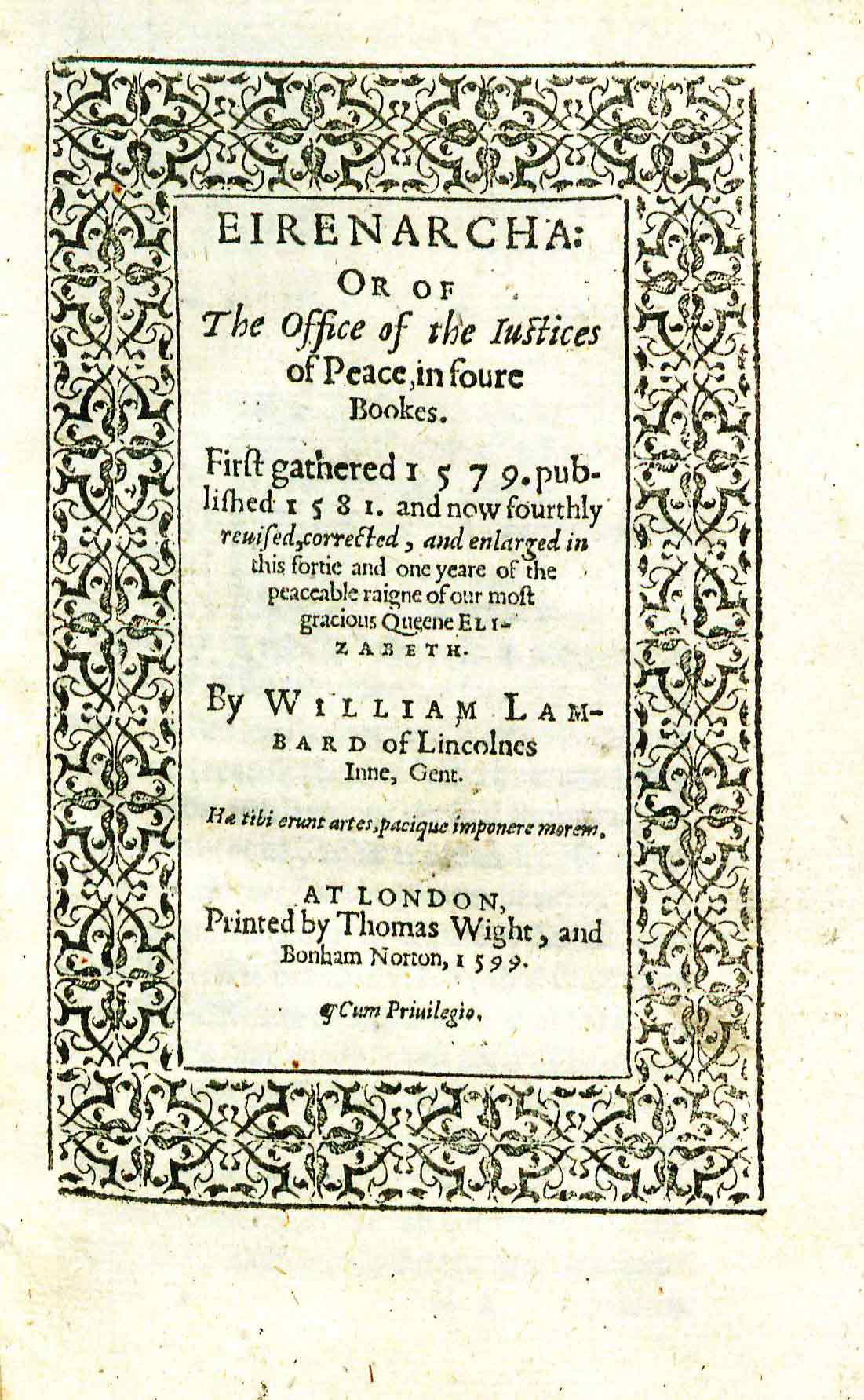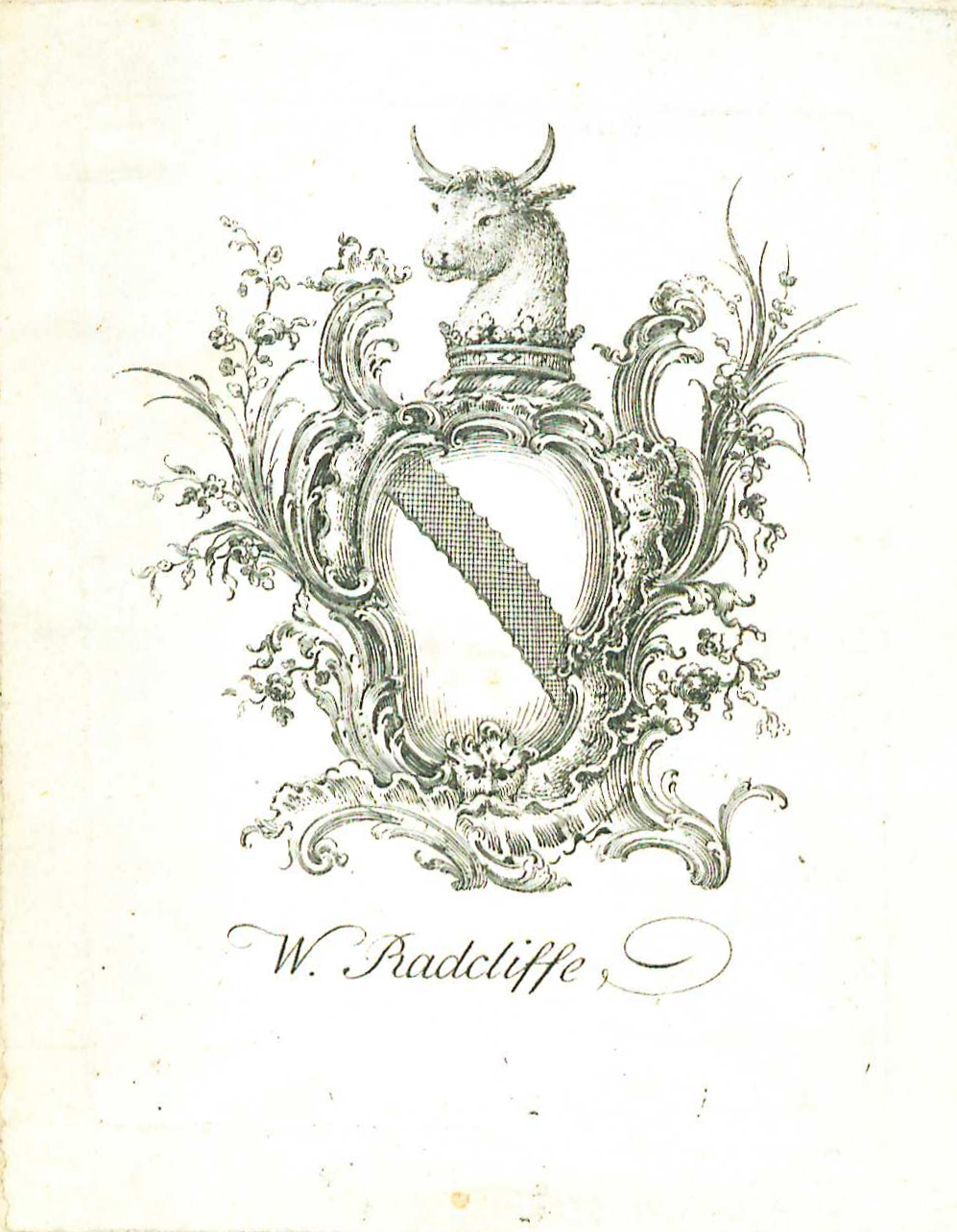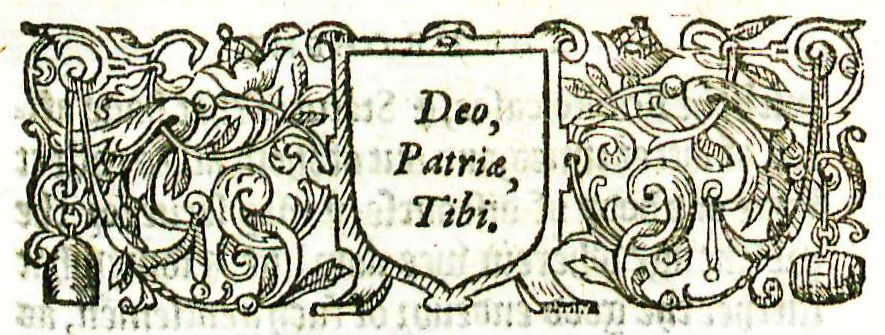Difference between revisions of "Eirenarcha"
m |
m |
||
| (One intermediate revision by the same user not shown) | |||
| Line 14: | Line 14: | ||
|pages=[2], 606 (i.e. 614), [86] | |pages=[2], 606 (i.e. 614), [86] | ||
|desc=[[:Category:Sextodecimos|16 mo (16 cm.)]] | |desc=[[:Category:Sextodecimos|16 mo (16 cm.)]] | ||
| − | |shelf= | + | |shelf=G-1 |
}}[http://en.wikipedia.org/wiki/William_Lambarde William Lambarde] (1536 – 1601) was an antiquarian and lawyer whose writings were marked by his strong Protestantism.<ref>N.M. Fuidge, "Lambarde, William (1536-1601), of Lincoln's Inn and Westcombe, near Greenwich, Kent" in ''The History of Parliament: The House of Commons 1558-1603'', ed. P.W. Hasler (London: Boydell, 2006).</ref> He had a devotion to both scholarship and county administration—particularly following his call to the bar in 1567. Lambarde's first experience with county administration came with his appointment as commissioner of sewers for Kent the following year. He spent the next years of his life largely focused on surveying county histories and building his own estates. In 1579, Lambarde was assigned to the county commission of the peace, and became justice of the quorum about five years later.<ref>J. D. Alsop, "[http://www.oxforddnb.com/view/article/15921 Lambarde, William (1536–1601)]" in ''Oxford Dictionary of National Biography'', accessed October 8, 2013.</ref> Lambarde possessed an eloquent, yet plain, writing style—the government often turned to him for drafting or amending parliamentary bills, and appointed him to a committee of lawyers who identified unnecessary or defective statutes.<ref>Fuidge, “Lambarde, William."</ref> Throughout his life, Lambarde wrote many novel and influential texts, including ''Archaionomia'' (1568), a paraphrase of Anglo-Saxon laws; ''Perambulation of Kent: Containing the Description, Hystorie and Customs of that Shyre'' (1576), the earliest county history that included a survey of Kent's climate, economy, religion, and general society; and ''Eirenarcha, or, The Office of the Justices of Peace'' (1582).<ref>Alsop, “Lambarde, William."</ref> | }}[http://en.wikipedia.org/wiki/William_Lambarde William Lambarde] (1536 – 1601) was an antiquarian and lawyer whose writings were marked by his strong Protestantism.<ref>N.M. Fuidge, "Lambarde, William (1536-1601), of Lincoln's Inn and Westcombe, near Greenwich, Kent" in ''The History of Parliament: The House of Commons 1558-1603'', ed. P.W. Hasler (London: Boydell, 2006).</ref> He had a devotion to both scholarship and county administration—particularly following his call to the bar in 1567. Lambarde's first experience with county administration came with his appointment as commissioner of sewers for Kent the following year. He spent the next years of his life largely focused on surveying county histories and building his own estates. In 1579, Lambarde was assigned to the county commission of the peace, and became justice of the quorum about five years later.<ref>J. D. Alsop, "[http://www.oxforddnb.com/view/article/15921 Lambarde, William (1536–1601)]" in ''Oxford Dictionary of National Biography'', accessed October 8, 2013.</ref> Lambarde possessed an eloquent, yet plain, writing style—the government often turned to him for drafting or amending parliamentary bills, and appointed him to a committee of lawyers who identified unnecessary or defective statutes.<ref>Fuidge, “Lambarde, William."</ref> Throughout his life, Lambarde wrote many novel and influential texts, including ''Archaionomia'' (1568), a paraphrase of Anglo-Saxon laws; ''Perambulation of Kent: Containing the Description, Hystorie and Customs of that Shyre'' (1576), the earliest county history that included a survey of Kent's climate, economy, religion, and general society; and ''Eirenarcha, or, The Office of the Justices of Peace'' (1582).<ref>Alsop, “Lambarde, William."</ref> | ||
| Line 24: | Line 24: | ||
==Evidence for Inclusion in Wythe's Library== | ==Evidence for Inclusion in Wythe's Library== | ||
| − | Wythe ordered "Lamb eirenarcha" from John Norton & Sons in a [[Wythe to John Norton, 29 May 1772|letter]] dated May 29, 1772. Records indicate the order was fulfilled.<ref>Frances Norton Mason, ed., ''John Norton & Sons, Merchants of London and Virginia: Being the Papers from their Counting House for the Years 1750 to 1795'' (Richmond, Virginia: Dietz Press, 1937), 242-243. The letter is endorsed "Virga. 29 May 1772 / George Wythe / Recd. 21 September / Goods Entd. pa. 163/ Ans. the March 1773."</ref> All four of the Wythe Collection sources (Goodwin's pamphlet<ref>Mary R. M. Goodwin, [ | + | Wythe ordered "Lamb eirenarcha" from John Norton & Sons in a [[Wythe to John Norton, 29 May 1772|letter]] dated May 29, 1772. Records indicate the order was fulfilled.<ref>Frances Norton Mason, ed., ''John Norton & Sons, Merchants of London and Virginia: Being the Papers from their Counting House for the Years 1750 to 1795'' (Richmond, Virginia: Dietz Press, 1937), 242-243. The letter is endorsed "Virga. 29 May 1772 / George Wythe / Recd. 21 September / Goods Entd. pa. 163/ Ans. the March 1773."</ref> All four of the Wythe Collection sources (Goodwin's pamphlet<ref>Mary R. M. Goodwin, [https://research.colonialwilliamsburg.org/DigitalLibrary/view/index.cfm?doc=ResearchReports\RR0216.xml ''The George Wythe House: Its Furniture and Furnishings''] (Williamsburg, Virginia: Colonial Williamsburg Foundation Library, 1958), LII.</ref>, [[Dean Bibliography|Dean's Memo]]<ref>[[Dean Bibliography|Memorandum from Barbara C. Dean]], Colonial Williamsburg Found., to Mrs. Stiverson, Colonial Williamsburg Found. (June 16, 1975), 8 (on file at Wolf Law Library, College of William & Mary).</ref>, Brown's Bibliography<ref>Bennie Brown, "The Library of George Wythe of Williamsburg and Richmond," (unpublished manuscript, May, 2012) Microsoft Word file. Earlier edition available at: https://digitalarchive.wm.edu/handle/10288/13433.</ref> and [http://www.librarything.com/profile/GeorgeWythe George Wythe's Library]<ref>''LibraryThing'', s.v. "[http://www.librarything.com/profile/GeorgeWythe Member: George Wythe]," accessed on June 28, 2013.</ref> on LibraryThing) refer to Wythe's letter. Goodwin did not identify a specific work or edition. Dean lists the first edition (1581), noting "other editions to 1619." Brown includes the seventh edition (1599) based on a copy [[Thomas Jefferson]] sold to the Library of Congress in 1815.<ref>E. Millicent Sowerby, ''Catalogue of the Library of Thomas Jefferson'', (Washington, D.C.: The Library of Congress, 1952-1959), 2:302 [[http://babel.hathitrust.org/cgi/pt?id=mdp.39015033648109;view=1up;seq=320 no.1964]].</ref> LibraryThing notes "precise edition unknown". The Wolf Law Library followed Brown's recommendation and moved a copy the 1599 seventh edition from an existing rare book collection to the [[George Wythe Collection]]. |
Latest revision as of 10:44, 23 May 2024
by William Lambarde
| Eirenarcha | |
|
Title page from Eirenarcha, George Wythe Collection, Wolf Law Library, College of William & Mary. | |
| Author | William Lambarde |
| Published | F. At London: Printed by Thomas Wight, and Bonham Nortan |
| Date | 1599 |
| Edition | Fourth, revised, corrected and enlarged |
| Language | English |
| Pages | [2], 606 (i.e. 614), [86] |
| Desc. | 16 mo (16 cm.) |
| Location | Shelf G-1 |
William Lambarde (1536 – 1601) was an antiquarian and lawyer whose writings were marked by his strong Protestantism.[1] He had a devotion to both scholarship and county administration—particularly following his call to the bar in 1567. Lambarde's first experience with county administration came with his appointment as commissioner of sewers for Kent the following year. He spent the next years of his life largely focused on surveying county histories and building his own estates. In 1579, Lambarde was assigned to the county commission of the peace, and became justice of the quorum about five years later.[2] Lambarde possessed an eloquent, yet plain, writing style—the government often turned to him for drafting or amending parliamentary bills, and appointed him to a committee of lawyers who identified unnecessary or defective statutes.[3] Throughout his life, Lambarde wrote many novel and influential texts, including Archaionomia (1568), a paraphrase of Anglo-Saxon laws; Perambulation of Kent: Containing the Description, Hystorie and Customs of that Shyre (1576), the earliest county history that included a survey of Kent's climate, economy, religion, and general society; and Eirenarcha, or, The Office of the Justices of Peace (1582).[4]
Eirenarcha was first published in 1581, a short time after Lambarde was appointed a Commissioner of the Peace.[5] In part, Lambarde wrote it for personal reasons: to fulfill the desire to study the history and development of positions he held,[6] and to serve as an aid in fulfilling and understanding his duties as Commissioner of the Peace.[7] Beyond those more personal purposes, the treatise became widely popular, serving as an updated, useful guide for justices of the peace in both England and Wales—a particularly important development considering the previous "manual" had been published more than 40 years prior to Eirenarcha. However, Lambarde did not seek merely to record the practices of justices of the peace as they were. Ever the progressive legal analyst, Lambarde expanded his scope to propose new rules, regulations, and practices to be observed by all justices of the peace. In fact, in an effort to see legal defects addressed, Lambarde went so far as to dedicate the Eirenarcha to the Lord Chancellor in the hope that he would advance the roles of justices of the peace in accordance with Lambarde’s suggestions.[8] Ultimately, the work saw twelve reprintings prior to 1620, and for long after remained the standard authority on justices of the peace.[9]
Evidence for Inclusion in Wythe's Library
Wythe ordered "Lamb eirenarcha" from John Norton & Sons in a letter dated May 29, 1772. Records indicate the order was fulfilled.[10] All four of the Wythe Collection sources (Goodwin's pamphlet[11], Dean's Memo[12], Brown's Bibliography[13] and George Wythe's Library[14] on LibraryThing) refer to Wythe's letter. Goodwin did not identify a specific work or edition. Dean lists the first edition (1581), noting "other editions to 1619." Brown includes the seventh edition (1599) based on a copy Thomas Jefferson sold to the Library of Congress in 1815.[15] LibraryThing notes "precise edition unknown". The Wolf Law Library followed Brown's recommendation and moved a copy the 1599 seventh edition from an existing rare book collection to the George Wythe Collection.
Description of the Wolf Law Library's copy
Bound in contemporary full calf with recent blind calf reback; red leather label with binder's title "Lombard's Eirenarcha"; text trimmed cutting into running title. Includes the bookplate of W. Radcliffe on the front pastedown. Purchased through the generosity of Daniel W. Baran and Lena Stratton Baran, Class of 1936.
Images of the library's copy of this book are available on Flickr. View the record for this book in William & Mary's online catalog.
Full text
- Eirenarcha (24MB PDF)
See also
References
- ↑ N.M. Fuidge, "Lambarde, William (1536-1601), of Lincoln's Inn and Westcombe, near Greenwich, Kent" in The History of Parliament: The House of Commons 1558-1603, ed. P.W. Hasler (London: Boydell, 2006).
- ↑ J. D. Alsop, "Lambarde, William (1536–1601)" in Oxford Dictionary of National Biography, accessed October 8, 2013.
- ↑ Fuidge, “Lambarde, William."
- ↑ Alsop, “Lambarde, William."
- ↑ Ibid.
- ↑ Ibid.
- ↑ Rhys Jones, People/States/Territories: The Political Geographies of British State Transformation (Malden, MA: Blackwell).
- ↑ Ibid.
- ↑ Alsop, “Lambarde, William."
- ↑ Frances Norton Mason, ed., John Norton & Sons, Merchants of London and Virginia: Being the Papers from their Counting House for the Years 1750 to 1795 (Richmond, Virginia: Dietz Press, 1937), 242-243. The letter is endorsed "Virga. 29 May 1772 / George Wythe / Recd. 21 September / Goods Entd. pa. 163/ Ans. the March 1773."
- ↑ Mary R. M. Goodwin, The George Wythe House: Its Furniture and Furnishings (Williamsburg, Virginia: Colonial Williamsburg Foundation Library, 1958), LII.
- ↑ Memorandum from Barbara C. Dean, Colonial Williamsburg Found., to Mrs. Stiverson, Colonial Williamsburg Found. (June 16, 1975), 8 (on file at Wolf Law Library, College of William & Mary).
- ↑ Bennie Brown, "The Library of George Wythe of Williamsburg and Richmond," (unpublished manuscript, May, 2012) Microsoft Word file. Earlier edition available at: https://digitalarchive.wm.edu/handle/10288/13433.
- ↑ LibraryThing, s.v. "Member: George Wythe," accessed on June 28, 2013.
- ↑ E. Millicent Sowerby, Catalogue of the Library of Thomas Jefferson, (Washington, D.C.: The Library of Congress, 1952-1959), 2:302 [no.1964].


